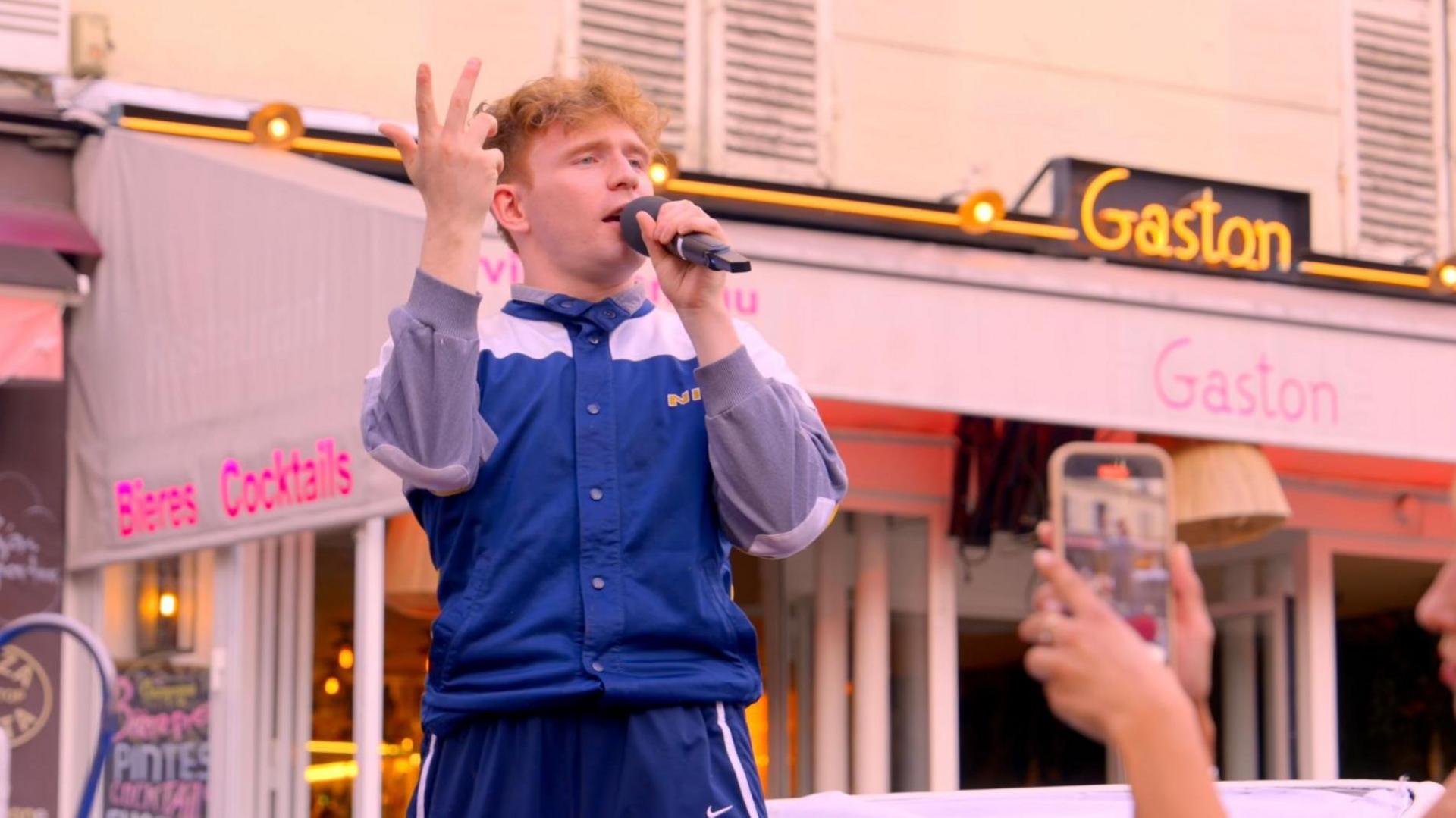For much of his career, Mickey Callisto has carried the weight of comparison. Ever since he began performing Queen classics in talent show appearances and local gigs, critics have been quick to label him a Freddie Mercury imitator. While the parallels are understandable—both are theatrical performers with big voices—the comparison has often overshadowed Callisto’s individuality. At the 2025 Stendhal Festival, however, he took one of Queen’s most iconic songs, We Are the Champions, and turned it into something deeply personal.

From the first notes, it was clear that this was not an attempt to mimic Mercury’s delivery. The opening verses were delivered with a quieter intensity, tinged with a sense of defiance. Rather than leaning on mimicry, Callisto allowed the raw edges of his voice to show. It was half rock grit, half theatrical expression, and wholly his own. By the time the chorus arrived, the performance felt like more than a cover—it was a declaration.
Choosing We Are the Champions was deliberate. The anthem has always symbolized triumph in the face of adversity, but in Callisto’s hands, it became a response to years of skepticism. Every chorus carried double meaning: a nod to Queen’s timeless message of resilience, and a personal statement to critics who doubted his place as an artist. He wasn’t running from the comparisons—he was reclaiming them, reshaping the narrative into one of strength.

The setting amplified the moment. Stendhal’s open-air stage, framed by a lively festival crowd, gave the performance a communal energy. As Callisto powered through the song, the audience began singing along, their voices merging with his. What could have been another festival cover turned into a shared celebration. Those watching weren’t just revisiting Queen’s legacy; they were watching a performer seize his own.
Audience reactions reflected that shift in perception. Online, fans highlighted the difference between imitation and authenticity. “He may get compared to Freddie, but tonight Mickey proved he’s his own champion,” one wrote. Another captured the essence of the night: “For the first time, I stopped comparing him and just enjoyed him. That’s when I realized he’s more than the label people put on him.” These responses suggest that for many, this performance marked a turning point in how Callisto is viewed.

This wasn’t the only Queen-related moment tied to Mickey Callisto in 2025. Earlier in the year, he took part in a surprise flashmob in Paris, performing Bohemian Rhapsody alongside dozens of musicians, including an 11-year-old guitarist who amazed onlookers. That event, widely shared online, captured the joy of music spilling into everyday life. But at Stendhal, the story was more personal. Instead of spectacle, it was about identity—about an artist refusing to be boxed in by comparison.
In the end, Callisto’s We Are the Champions at Stendhal 2025 wasn’t about imitation. It was about transformation. By embracing the very criticism that has followed him, he turned it into fuel for a performance that felt both vulnerable and victorious. For Mickey, the message was simple: he doesn’t need to escape the shadows of the past—he only needs to shine his own light within them.
